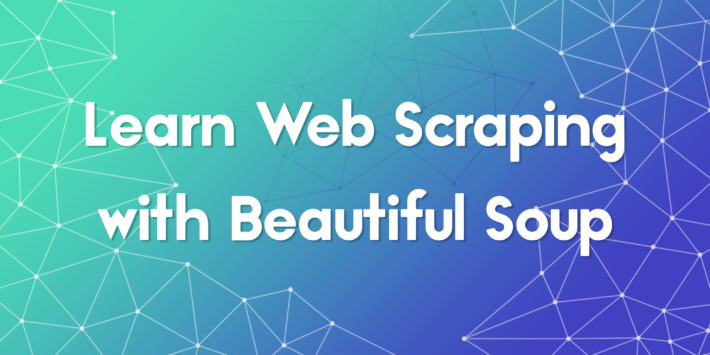Top Python Web Scraping Libraries for 2025

Web scraping is an essential technique for extracting data from the internet, and Python is a popular choice for this task, thanks to its wide range of powerful libraries. This article dives into the best Python web scraping libraries available, highlighting their key features, strengths, and limitations. Whether you’re gathering market intelligence, conducting research, or automating data collection, understanding these tools will be invaluable. We’ll also explore how ProxyTee can enhance your scraping projects with its reliable and efficient proxy solutions. Here at ProxyTee, we know the importance of having a strong proxy, that’s why our product Unlimited Residential Proxies provide unlimited bandwidth, rotating residential IPs and geo-targeting to make your scraping seamless.
What is a Python Web Scraping Library?
A Python web scraping library is a specialized tool designed to facilitate the extraction of data from websites. These libraries handle the complexities of web communication, such as sending HTTP requests, parsing HTML or XML content, and rendering JavaScript for dynamic web content. They enable developers to interact with web servers and navigate through the Document Object Model (DOM) of a website. There are typically HTTP clients, parsing tools and all in one browser automation tools.
Key Factors to Consider When Comparing Scraping Libraries
When evaluating Python web scraping libraries, consider these factors:
- Goal: Understand the library’s primary purpose (e.g., HTTP requests, browser automation, HTML parsing)
- Features: Evaluate core functionalities, compatibility with protocols (HTTP, SOCKS5 supported by ProxyTee) and specific data extraction abilities
- Category: Note if it’s an HTTP client, parser, browser automation tool or complete framework.
- Community Interest: Check its GitHub stars for community approval and engagement.
- Weekly Downloads: High downloads mean reliability, active support, and broad community usage.
- Release Frequency: Regular updates keep the library fresh and robust, including addressing security vulnerabilities.
- Pros & Cons: Understand the main strengths and weaknesses of the library, its use cases and limitations.
ProxyTee offers robust solutions, such as Residential Proxies with over 20 million IPs from more than 100 countries to enable a smooth web scraping experience, you may refer to all key features of ProxyTee to get more info.
Top Python Libraries for Web Scraping
Below are some of the best open-source Python scraping libraries, each bringing a unique approach to handling scraping.
1️⃣ Selenium
Selenium is a powerful browser automation tool. It allows interaction with web pages in a manner that mimics human behavior. This makes it particularly useful for dynamic content generated by JavaScript, and the main features of Selenium include support for multiple browsers, headless browsing, and methods to simulate user actions (clicking, filling forms).
Category: Browser automation
Pros:
- The most popular browser automation tool with tons of online support
- Offers a robust and extensive API for controlling browsers.
Cons:
- Can be slower compared to more modern tools.
- Its implicit and explicit waiting mechanism can be unreliable.
2️⃣ Requests
The Requests library is fundamental for sending HTTP requests in Python. It simplifies tasks like handling cookies and session management. This is not a complete solution for web scraping because lacks HTML parsing capabilities, it is commonly used with tools like Beautiful Soup.
Category: HTTP client
Pros:
- The most popular HTTP client in Python with an intuitive API
- Supports multiple methods and has resources online.
Cons:
- Requires an HTML parser for actual scraping.
- Does not provide TLS fingerprint spoofing capabilities
3️⃣ Beautiful Soup
Beautiful Soup is used for parsing HTML and XML documents in Python. Once parsed, it facilitates DOM structure navigation and data extraction using its user-friendly API. Beautiful Soup also handles poorly structured HTML and supports a variety of parsing backends. Because it is an HTML parser only, it needs to be paired with HTTP libraries.
Category: HTML parser
Pros:
- Widely adopted for HTML parsing.
- Integrates well with different HTTP parsing engines.
Cons:
- Requires an external HTTP client such as Requests to function.
- It is not compatible with JavaScript engines
4️⃣ SeleniumBase
SeleniumBase extends Selenium with advanced features for enhanced web automation. It automates browser setup and integrates proxy authentication methods as well as methods to bypass bot detection solutions, with features for smart waiting.
Category: Browser automation
Pros:
- Extended capabilities to overcome Selenium limitations.
- Features built-in mechanisms for anti-bot circumvention
Cons:
- May come with many features not needed for scraping
- Some limitation on child node data extraction, like Selenium.
5️⃣ curl_cffi
curl_cffi is an HTTP client based on cURL Impersonate, which focuses on mimicking browser behavior. Using TLS libraries, it can help in bypassing anti-scraping measures that rely on browser signatures.
Category: HTTP client
Pros:
- Can impersonate TLS signatures and JA3 fingerprints
- Features request-like and low-level cURL-like API
Cons:
- Lacks substantial online resources or tutorials
- Does not provide Firefox impersonation.
6️⃣ Playwright
Playwright is a versatile headless browser automation library that can automate the majority of browsers like Chromium, WebKit, and Firefox with an excellent Python API. Playwright delivers many advanced automation features making it ideal for comprehensive and advanced scraping operations, even if still less known inside the Python community.
Category: Browser automation
Pros:
- Compatibility with all main browsers.
- Features auto-generation of CSS selectors
Cons:
- The library can be resource-intensive.
- Has a very steep learning curve.
7️⃣ Scrapy
Scrapy is a complete Python framework for large-scale data extraction tasks. It lets developers create “spiders” that manage HTTP requests, handle data storage, and parse HTML seamlessly. Plus, middleware can manage proxy integrations (ProxyTee supports HTTP and SOCKS5) as well as implement retries, throttling, and data storage. This robust all-in-one solution for web scraping makes it a very good option to be selected as it helps in many web scraping steps.
Category: Scraping framework
Pros:
- Automatic crawling functions and features with many command line options
- Rich API for scraping and crawling
Cons:
- Doesn’t support browser automation by itself.
- Can be challenging to configure properly.
Comparison Table
Below is a summary table for a quick overview of Python web scraping libraries:
| Library | Type | HTTP Requesting | HTML Parsing | JavaScript Rendering | Anti-detection | Learning Curve | GitHub Stars | Downloads |
|---|---|---|---|---|---|---|---|---|
| Selenium | Browser automation | ✔️ | ✔️ | ✔️ | ❌ | Medium | ~31.2k | ~4.7M |
| Requests | HTTP client | ✔️ | ❌ | ❌ | ❌ | Low | ~52.3k | ~128.3M |
| Beautiful Soup | HTML parser | ❌ | ✔️ | ❌ | ❌ | Low | — | ~29M |
| SeleniumBase | Browser automation | ✔️ | ✔️ | ✔️ | ✔️ | High | ~8.8k | ~200k |
| curl_cffi | HTTP client | ✔️ | ❌ | ❌ | ✔️ | Medium | ~2.8k | ~310k |
| Playwright | Browser automation | ✔️ | ✔️ | ✔️ | ❌ (but supported via the Stealth plugin) | High | ~12.2k | ~1.2M |
| Scrapy | Scraping framework | ✔️ | ✔️ | ❌ (but supported via the Scrapy-Splash plugin) | ❌ | High | ~53.7k | ~304k |
Building Effective Scraping Solutions with ProxyTee
This post discussed many of the top Python libraries for web scraping, including HTTP clients, parsing libraries and frameworks. They are all great in helping web scraping developers to achieve many steps involved. Still, when working with any web scraping process, users have to deal with issues like IP bans, CAPTCHAs, and advanced bot detection systems. That’s where ProxyTee comes into play, offering high-quality rotating residential proxies to help you bypass these challenges effectively.
ProxyTee’s Unlimited Residential Proxies feature unlimited bandwidth, global coverage (over 20 million IPs from more than 100 countries), support for multiple protocols (including HTTP and SOCKS5), auto-rotation features and the API integration which can integrate seamlessly with Python or any other programming language. We provide an affordable, reliable, and user-friendly solution with competitive pricing, compared to the competitors. Check out more pricing and use cases for web scraping today.


